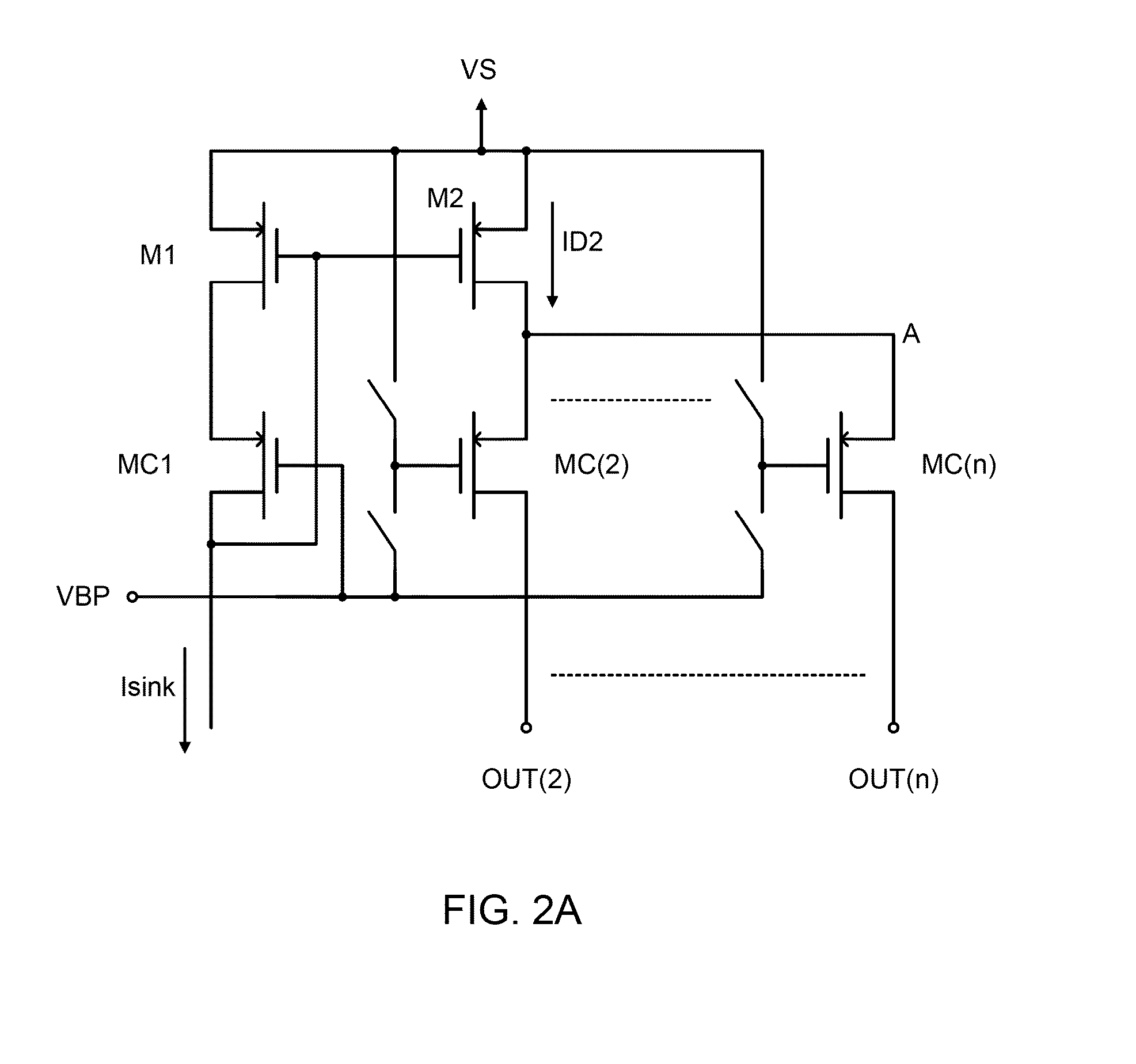Current sensing multiple output current stimulators
a stimulator and current sensing technology, applied in the field of current mirror circuits, can solve problems such as long turn on times for errors regarding the amplitude of current delivered, and inability to achieve the effect of delivering small output current levels
- Summary
- Abstract
- Description
- Claims
- Application Information
AI Technical Summary
Benefits of technology
Problems solved by technology
Method used
Image
Examples
Embodiment Construction
[0035]Referring now to FIG. 3, there is shown an overall block diagram of one example of a multiple output current stimulator system, and specifically, one embodiment of a pulse generator. The system includes both an anodic multiple output stimulator block 10A and a cathodic multiple output stimulator block 10B. The system provides for selecting either an anodic or cathodic stimulator based upon tissue stimulation requirements determined by a clinician. The outputs of the anodic and cathodic stimulators are selected by setting the corresponding “bits” in digital registers 2. Digital registers 2 generate digital control signals DCS, which control the selection of the anodic and cathodic stimulators. Although FIG. 3 discloses two stimulators 10A and 10B, the discussion below with reference to FIGS. 4A and 4B focuses solely on the anodic stimulator 10A. It is to be understood that in some embodiments a complementary circuit for the cathodic stimulator (not shown in FIG. 4A or 4B) funct...
PUM
 Login to View More
Login to View More Abstract
Description
Claims
Application Information
 Login to View More
Login to View More - R&D
- Intellectual Property
- Life Sciences
- Materials
- Tech Scout
- Unparalleled Data Quality
- Higher Quality Content
- 60% Fewer Hallucinations
Browse by: Latest US Patents, China's latest patents, Technical Efficacy Thesaurus, Application Domain, Technology Topic, Popular Technical Reports.
© 2025 PatSnap. All rights reserved.Legal|Privacy policy|Modern Slavery Act Transparency Statement|Sitemap|About US| Contact US: help@patsnap.com



